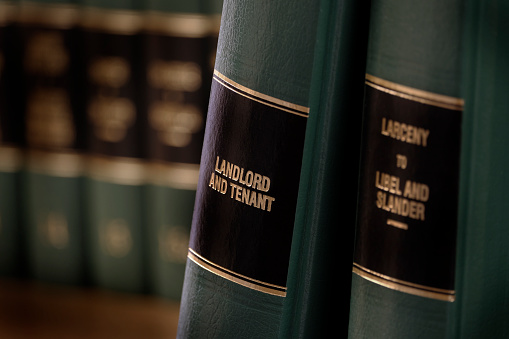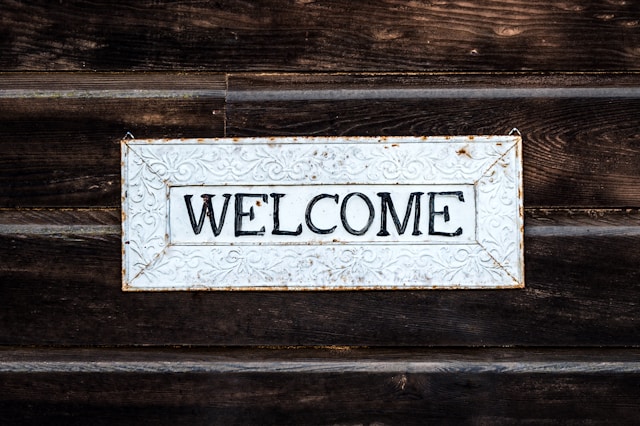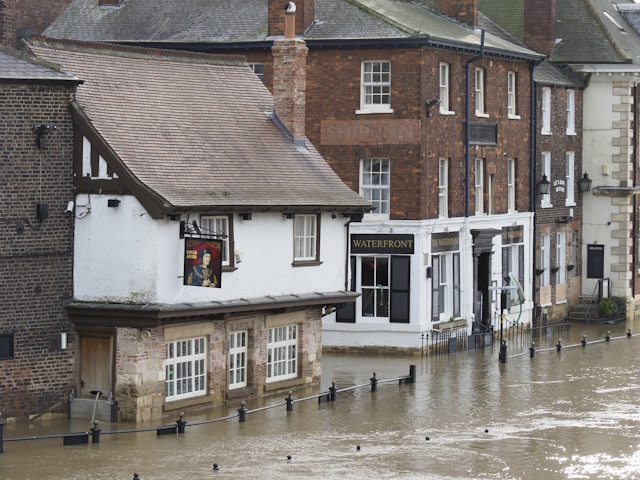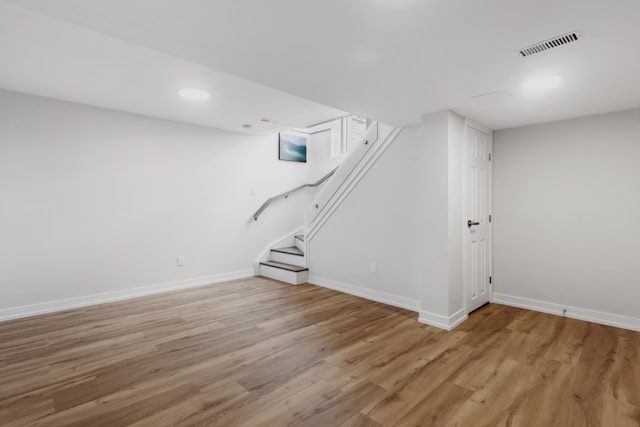When you are a landlord in Canada, you need to be sure that the unit that you rent out is aligned with the regulations and rules regarding maintenance, safety, and health. You may ask, “As a landlord, what are my rights?” The Residential Tenancies Act outlines the obligations that come with leasing a home to tenants in Ontario.
We’ve compiled all the necessary information that you need to know. Let’s dive in!
What is the Residential Tenancies Act (RTA)?
The Residential Tenancies Act, in short, the ‘Act,’ is an Ontario law that covers tenant and landlord responsibilities as well as landlord and tenant rights in Ontario. This law provides essential information about the rules, and its goal is to protect residential tenants from illegal evictions and rent increases, as well as establish obligations for residential rents. This way, the law can balance tenant rights and landlord responsibilities in Ontario and resolve disputes between them. People who live in rental housing are covered by the RTA, and it doesn’t apply to people who live in prison, emergency shelters, nursing homes or hospitals, units that are used temporarily or seasonally, student dormitories or residents, etc.
Landlords who violate tenants’ rights or don’t complete their obligations, such as charging extra fees, harassment, preventing the delivery of heat, water, or electricity, etc., can be subject to an offence. Once the tenant feels like the landlord or their employee is violating tenant rights, they can complain to the Rental Housing Enforcement Unit (RHEU). Once the complaint is made, the RHEU will examine the issues and will try to find solutions to them.
Landlord Responsibilities in Ontario
Now, it’s time to dig deeper into the landlord’s responsibilities in Ontario to get a better understanding of this position. Let’s have a look:
Repair
One of the most important landlord responsibilities in Ontario is keeping the residential complex in a good condition, which means repairing home and rental units that will meet the safety, health, maintenance, and housing standards. They are responsible for repairing things even when the tenant agreed to rent knowing the issues. But when the tenant or their guests damage the home, then the tenant is liable for any harm caused.
A landlord must keep all things in working order, including walls, ceilings, roofs, heating, electrical and plumbing systems, doors, windows, locks, pools, walkways, lighting, garages, appliances, carpets, and more. Once any of the amenities don’t work, break, or tear, they must seek repairs for them.
No harassment
The next responsibility of landlords is to not harass anyone. A landlord is not allowed to threaten, coerce, interfere, or harass tenants and anyone else on the property.
Vital Services
Another responsibility is to provide vital services to tenants during their occupancy and even before a tenant’s eviction is executed. Vital services include any reasonable supply of care service, access to cold and hot water, heat, electricity, etc. For example, when it comes to heat, the landlord must turn on the heating system starting from September 1 to June 15, and the temperature must be maintained at 20 degrees Celsius.
The landlord cannot cut off or interfere with the vital services for any reason. This law applies, even if the tenant has not paid their rent on time or has caused damage to the property. If a landlord is responsible for paying for any of these services, they are not allowed to let the service be shut off because of an unpaid payment. Also, they must not interfere with the reasonable enjoyment of the property.
Maintain the Rental Property
Landlords are responsible for maintaining individual rental properties. For example, landlords should manage mice and cockroaches. Additionally, they are in charge of clearing snow from walks, driveways, etc.
Notice
Knowing when the landlord may enter the unit without written notice and when with notice is crucial.
Entry without notice: A landlord can enter a rental unit without any notice if the tenant gives permission at the time of entry or if there is an emergency. Considering the tenancy agreement, if it is written that the tenant requires the landlord to clean the rental unit at specific times, the landlord can enter the unit at those times without any written notice. But if there is no mention of time, then between 8 a.m. and 8 p.m.
Whenever the landlord wants to show the property to potential tenants, they can enter the unit with a written notice:
- If they enter between 8 a.m. and 8 p.m.
- Both landlord and tenant agreed that the lease would end or one gave a notice of termination.
- And if the landlord informs or makes every effort to inform the tenant about the intention to enter.
Entry with notice: A landlord may enter a rental unit after giving the tenant written notice at least 24 hours in advance, once they want to show a potential renter the rental unit, want to repair or replace something in the unit, inspect the unit for maintenance, etc. More details can be found in the official Residential Tenancies Act.
Documents
Landlords must provide a few necessary documents free of charge. Here are some details:
- The landlord’s responsibility is to provide the tenant with a copy of the lease or tenancy agreement, as well as the home address and legal name. You are required to give them a rent receipt if they ask for one. All of these documents ought to be provided without charge.
- They need to give rent receipts if the tenant asks for them.
Changing Locks
Without providing the tenant with new keys, a landlord is not permitted to change the locking mechanism on a door while the tenant is occupying the rental property.
Renters’ Rights in Ontario and Tenant Responsibilities
There are also tenant rights and responsibilities written under the Ontario landlord-tenant act. As we’ve learned about the landlord’s responsibilities, it’s time to learn about Ontario tenant rights and responsibilities. Let’s briefly discuss this!
Ontario Tenant Rights
Here are some common tenant rights that are essential to know:
- A landlord has no right to refuse a tenant because of discrimination, including age, gender, religion, etc. And the screening must be a fair and equal process. For tenant screening and approval processes, property management services always come in handy for tenant screening and approval processes.
- Once the tenant moves in, they have the right to a safe home, vital services, documents, protection from illegal eviction, tenant insurance, privacy, etc.
- There is a right to a hearing and a right to have a copy of rent receipts.
Ontario Tenant Responsibilities
Let’s have a look at the common tenant responsibilities in Ontario. Tenants:
- Need to consider Ontario rental agreements or lease terms which must align with the landlord and tenant act in Ontario.
- Need to fix and repair any damage that they (or their guests or any other occupant of the rental unit) caused to the property.
- Should pay the rent on time.
- Must keep the property in an ordinary state of repair and cleanliness.
- Are not allowed to interfere with the peace and comfort of their neighbours.
- Cannot change the locks without the landlord’s agreement. If they have any concerns with safety and security, then they must write a letter to the landlord, mentioning all their concerns.
- A tenant is not allowed to threaten, coerce, harass or interfere with the landlord.
Frequently Asked Questions
And here are some common questions about tenant and landlord responsibilities with short answers:
- Is the landlord responsible for repairs? Yes, unless the damage was caused by the tenant. But they don’t have to replace an old appliance with a new one. Instead, they can bring used appliances if they are in good working order.
- Is the landlord responsible for the broken toilet? Yes. If the toilet wears, breaks or tears out, the landlord must repair or replace it. But note that the tenant is responsible to fix any damage that they or their guests cause.
- What is the landlord’s pest control responsibility in Ontario? They must control pests and any costs related to them.
- Is garbage disposal the tenant’s or landlord’s responsibility? Landlords must provide trash receptacles for proper garbage disposal, and tenants must keep their rental units clean.
- What are the landlord’s garbage responsibilities in Ontario?” They need to dispose of the garbage or make arrangements for regular trash pickup.
- Is it the landlord’s responsibility to change light bulbs? No, it’s the tenant’s responsibility to change the light bulbs, unless the lease arrangement states something else.
- Is the landlord responsible for snow removal in Ontario? Yes.
- Does a landlord have to provide appliances in Ontario? No.
- What happens when a landlord enters a property without permission in Ontario? Tenants can complain to RHEU and may also apply to the Landlord and Tenant Board.
These were all the essentials you need to know about landlord responsibilities and tenant rights in Ontario. Check the details and get in touch with Manage Your Property for any property management services.





